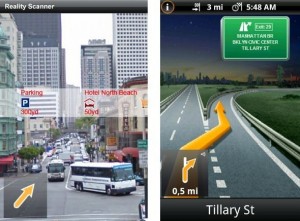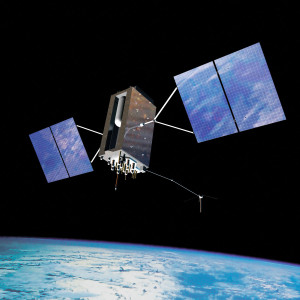GPS has been around since the 80s, but even today a lot of people don’t really understand how it works, and there are tons of myths floating around that are just not true. Today, I wanted to take a look at 10 of the myths that I hear more than anything else, and try and set the record straight.
Myth: GPS comes from signal stations
Fact: GPS signals are actually transmitted from a constellation of 30 satellites orbiting the Earth. While GPS signal stations are integral to the mathematical formula that calculates distances and makes GPS satellites function, the signals themselves are actually from space–not the ground.
Myth: The military controls GPS signals
Fact: Well, this is only partially false. While GPS signals and satellites are monitored and operated by the 2nd and 19th Space Operations Squadrons at Schriever Air Force Base in Colorado, the GPS program itself is actually owned and regulated by the U.S. government and funded through tax dollars.
Myth: The government uses GPS on phones/devices to track civilian movements
Fact: While some devices can transmit position back to satellites, most GPS-enabled devices are just receivers–meaning they can only pick up on signals. Sending signals back to the satellite is simply not possible on a lot of devices. This myth is likely perpetuated due to the vast amount of GPS trackers on the market, but it’s a needless concern. If the government really wanted to track you, the “Here I am!” function on social media would probably be a lot easier.
Myth: GPS receivers are less reliable when it’s cloudy
Fact: Because many people are familiar with satellite TV, which is notoriously touchy in bad weather, there is a mistaken impression that GPS satellites work the same way. However, GPS is a different kind of signal. While many people talk about GPS receivers needing a “clear view of the sky” to function correctly, they aren’t speaking literally clear of anything. That just means that the device needs to be clear of obstructions like buildings, mountains, dense canopies, etc. Clouds and fog generally do not effect GPS signals.
 Myth: GPS is really only for navigation
Myth: GPS is really only for navigation
Fact: While navigation is the main thing that most people think about when they think about GPS, in reality this technology has been utilized for hundreds of things including health, weather, banking and even to make art. And we’re still coming up with new ways to use this technology.
Myth: GPS is the reason you got lost
Fact: GPS refers to the navigational signals put out by satellites, which requires accurate and up to date maps in order to create routes. If your maps are out of date, then the GPS has no way of knowing that you can’t turn left here. In order to be accurate, the GPS must have good maps on which to overlay the navigational information. And, of course, these devices are not meant to substitute for common sense. So, instead of blaming the GPS, pay attention to how old the maps are.
Myth: GPS navigation systems will always find “the best route”
Fact: Most GPS devices allow you to pick the “shortest route” or the “most scenic route” but that doesn’t necessarily mean that it will be the best route. Your GPS device can’t look at a map and know at what time of the day a certain intersection is overcrowded, or know that everyone takes Main Street to avoid congestion. This is referred to as ‘local knowledge’ and it’s hard to replicate on a machine. But even if you did, it’s hard to get people to agree on which is the ‘best route’ to begin with. GPS is only going to provide routes based on algorithms which may or may not include traffic, weather and other data, so be aware of that when planning a trip.
Myth: GPS is the only and most advanced system of its kind
Fact: When it first launched, GPS was unique and was definitely the most advanced navigational system. However, since then other countries have launched their own versions, some of which (like Galileo) promise to be more accurate. Russia has a GLONASS satellite system that is fully operational, while China and Europe are currently working on deploying their own systems. Several other countries, like India, have satellites that orbit over their specific regions, which can be used in conjunction with one of the global constellations.
Myth: Military GPS is more accurate than civilian GPS
Fact: According to GPS.gov, this is false. The military and civilian sectors receive the same signal from space. The main difference is that the military operates on two different signals, while the civilian sector is limited to one. According to an article by Schriever Air Force Base (the base out of which GPS is controlled) work is being done to upgrade the civilian bands so that civilians will also be able to utilize two signals. This upgrade is still under progress.
Myth: Garmin is the only manufacturer of GPS devices
Fact: While Garmin is undoubtedly one of the best and most popular manufacturers of GPS devices, it is far from the only company that provides services. TomTom, Magellan and DeLorme are a few others in the market, and their devices are excellent as well.
So, how many of them did you know? Are there any other GPS myths that you hear frequently that I didn’t include? Let me know in the comments!

